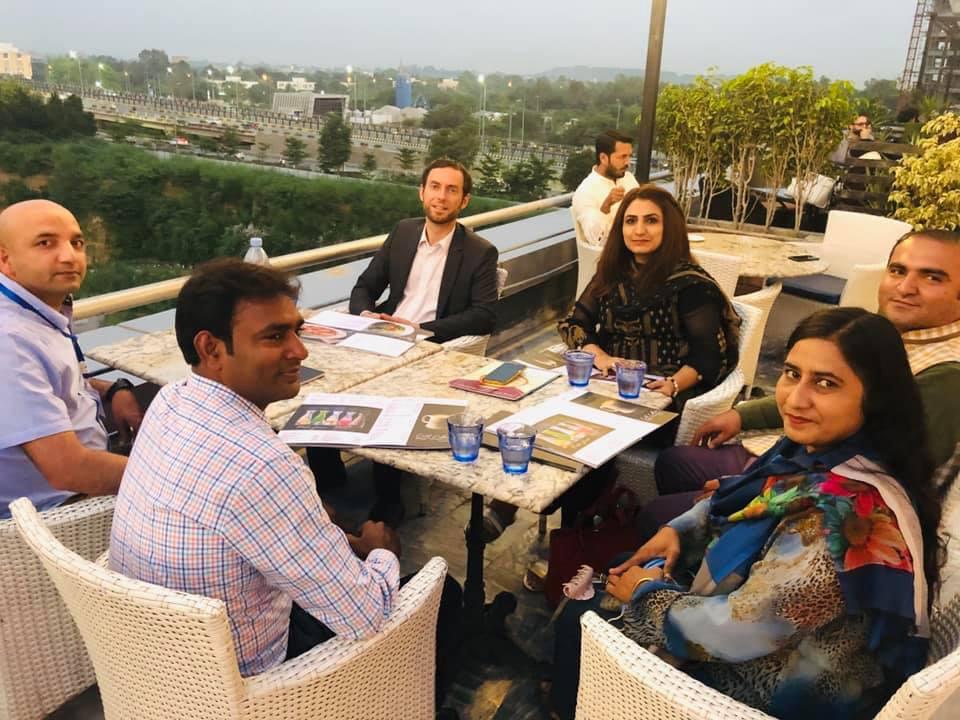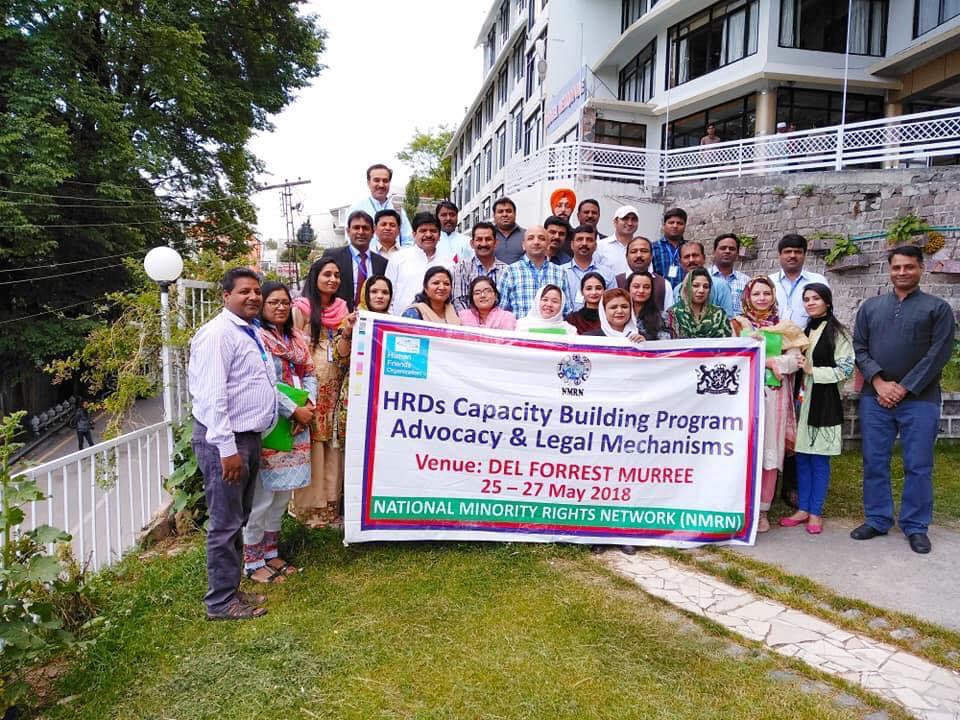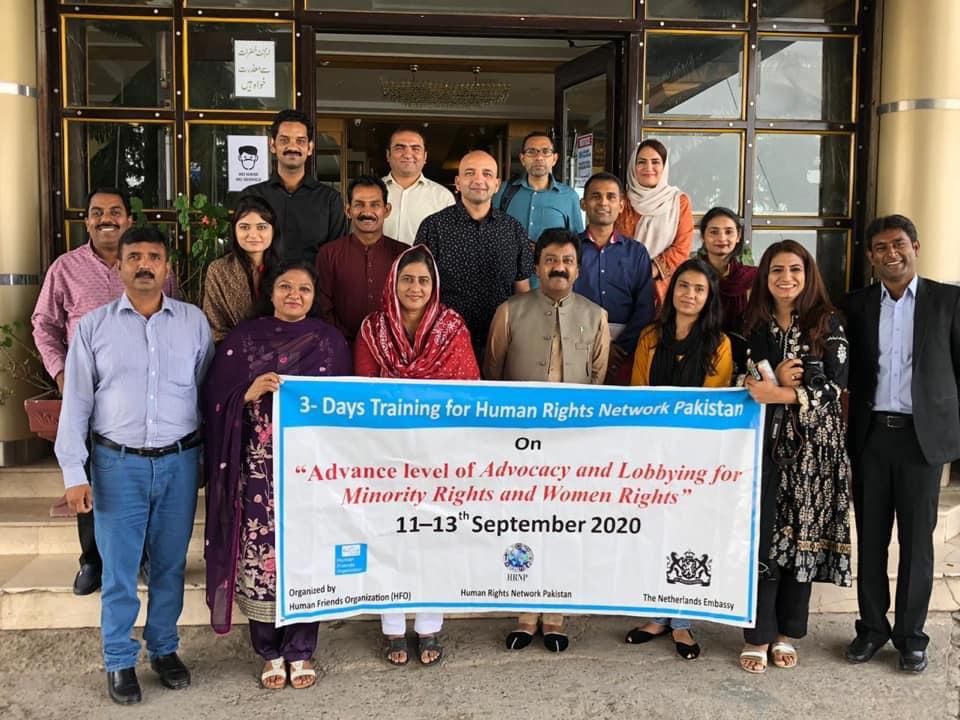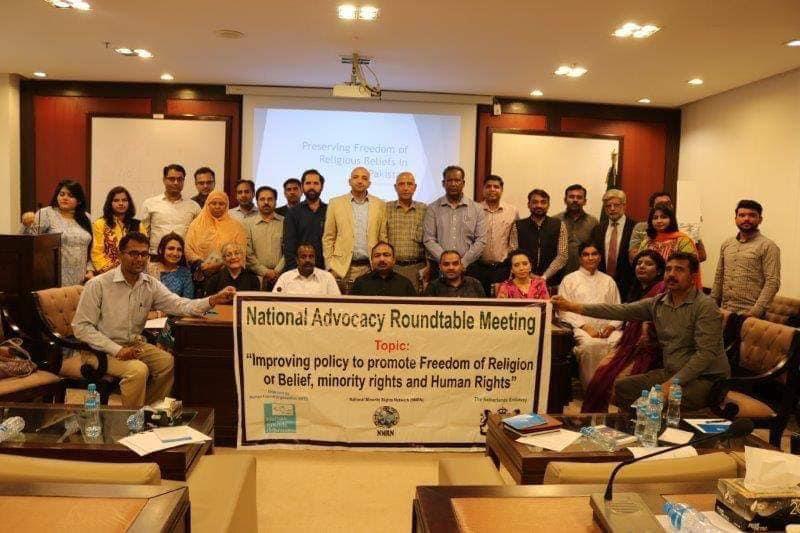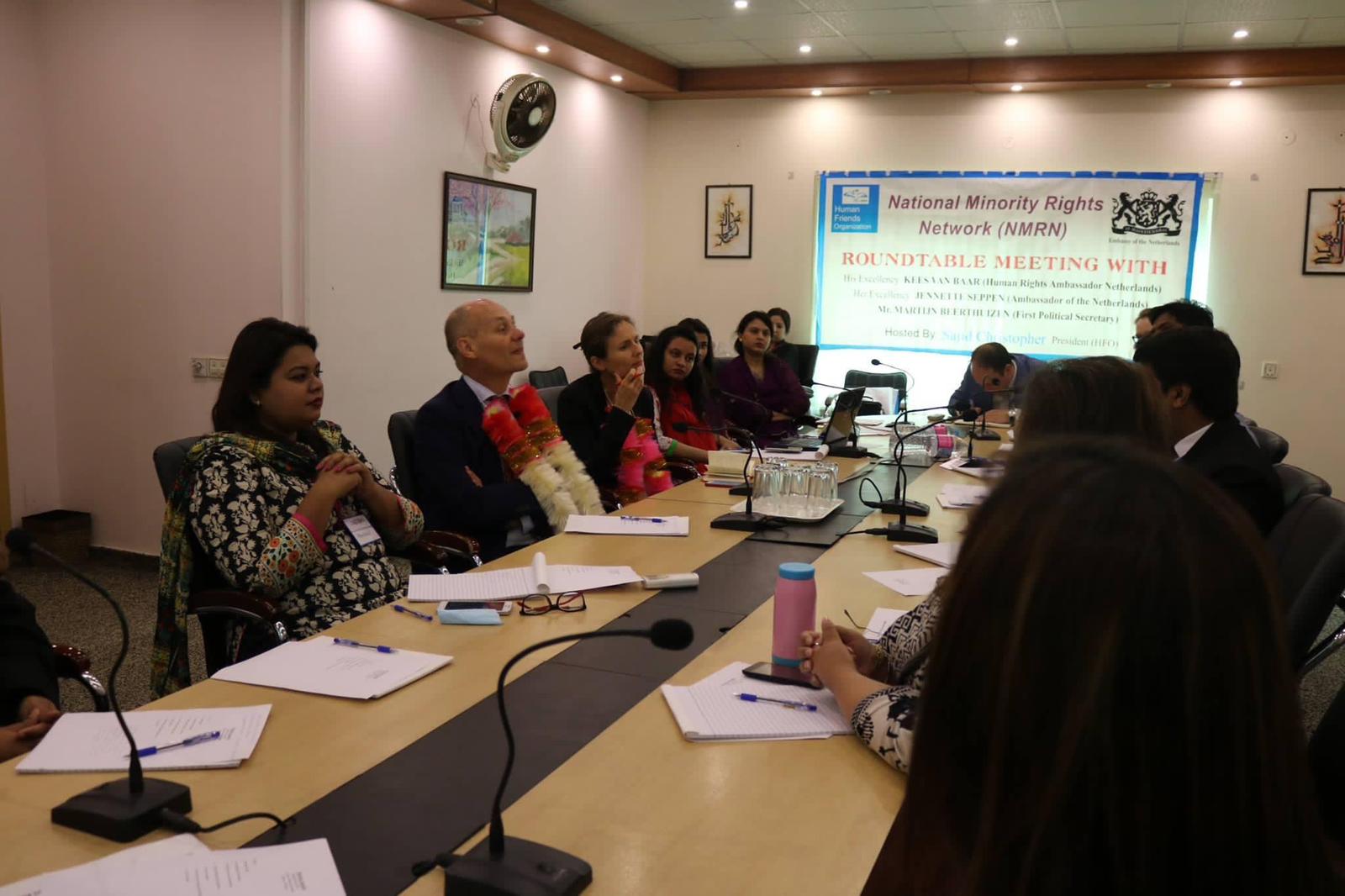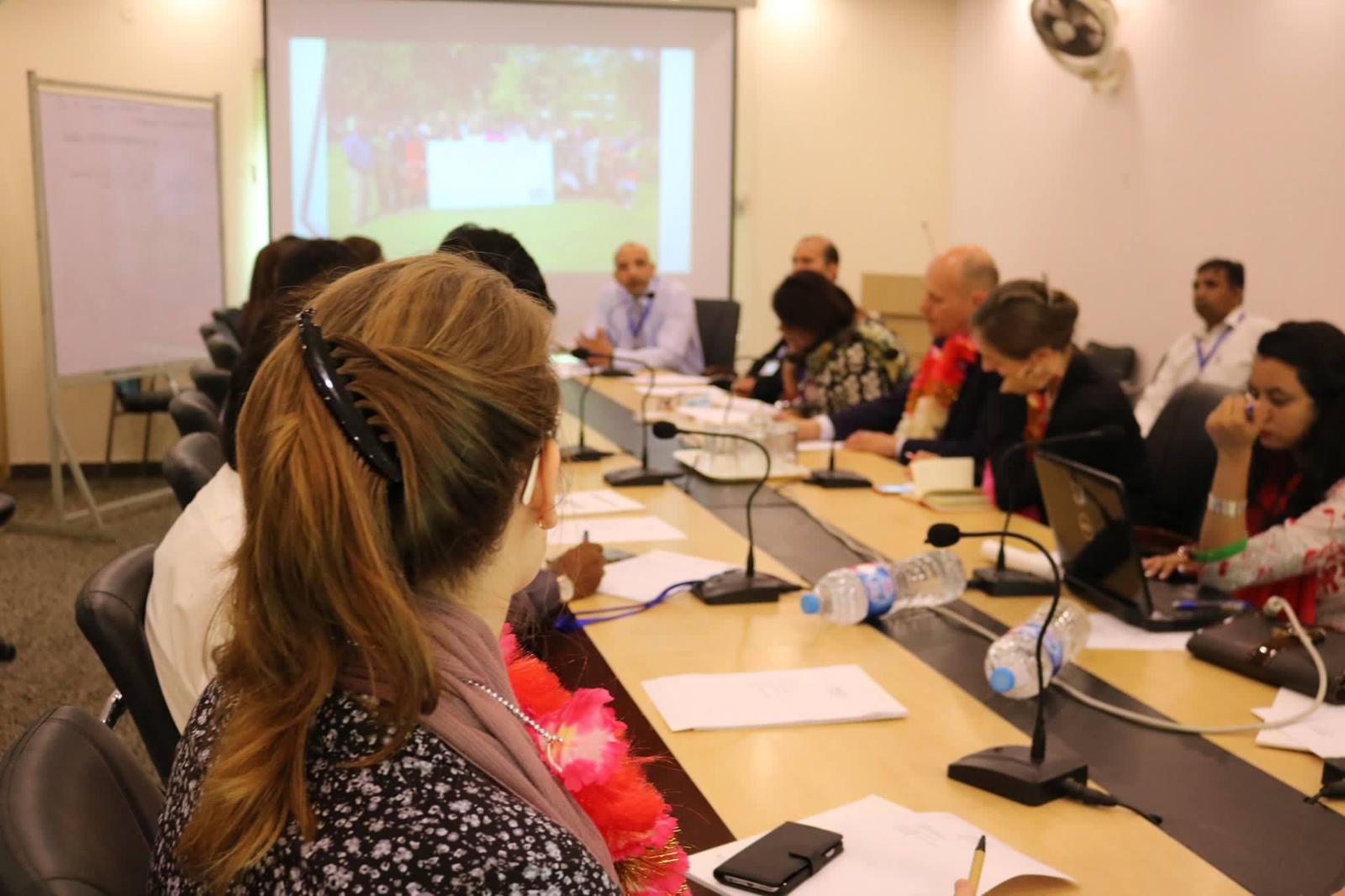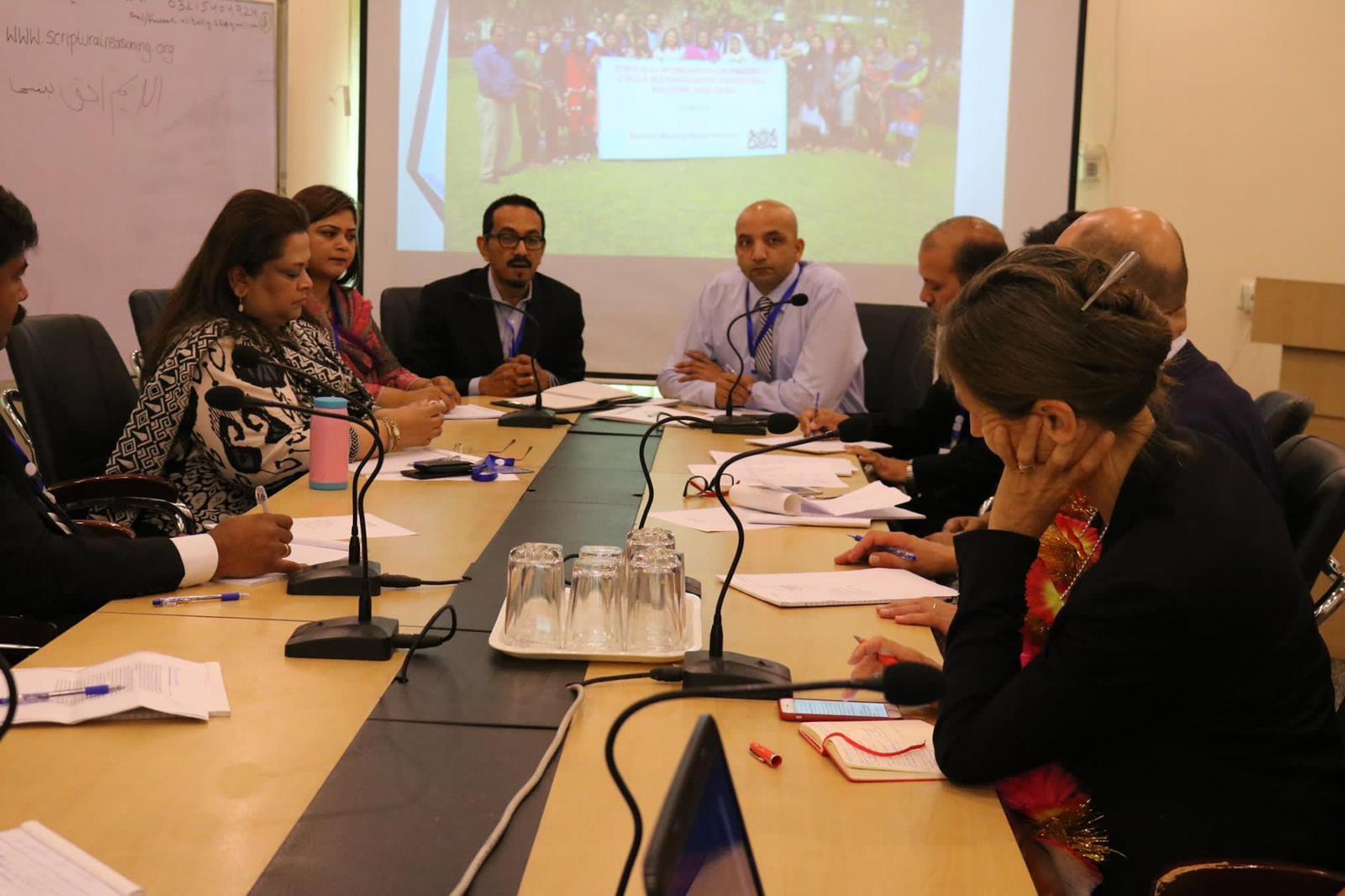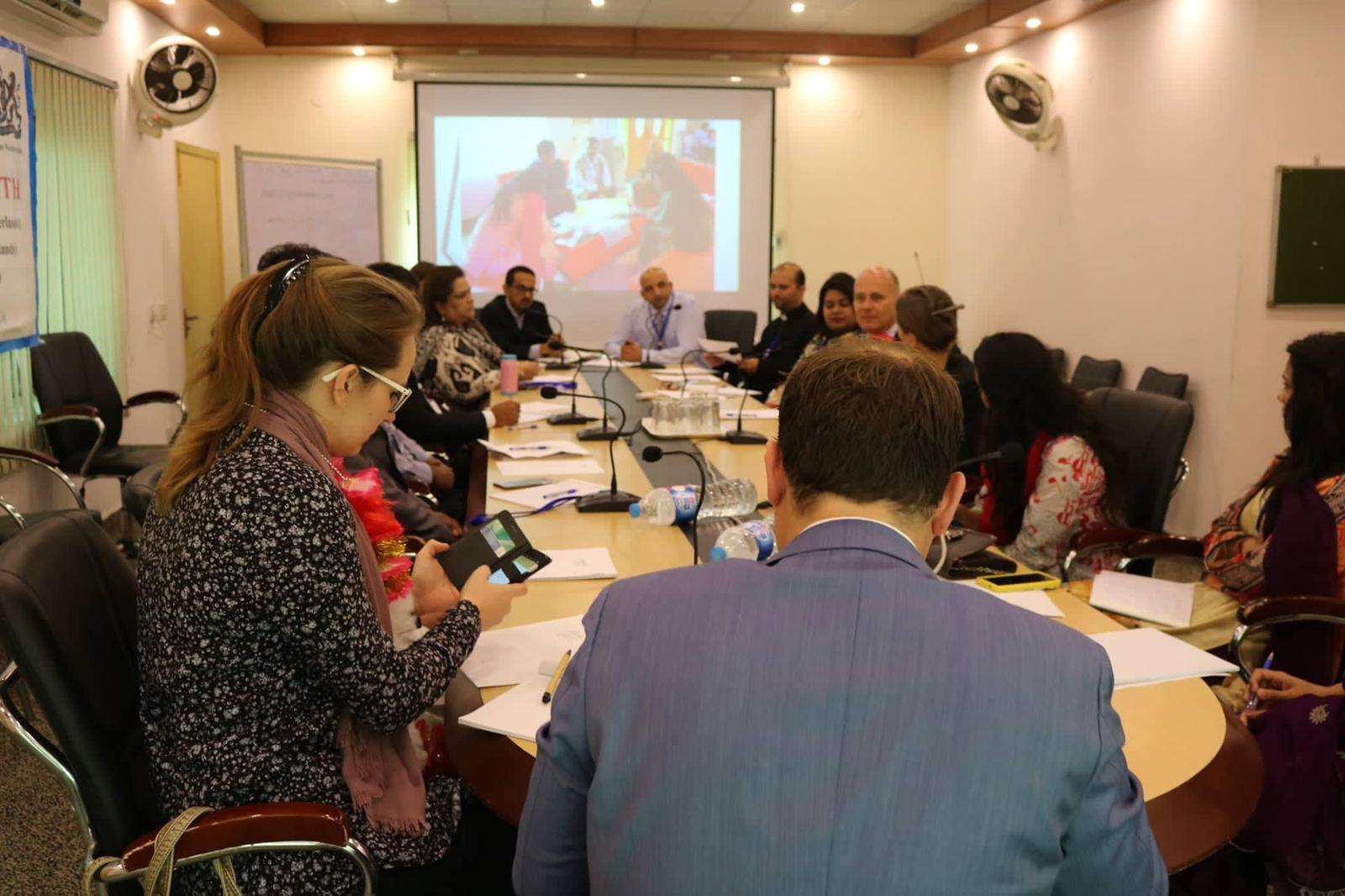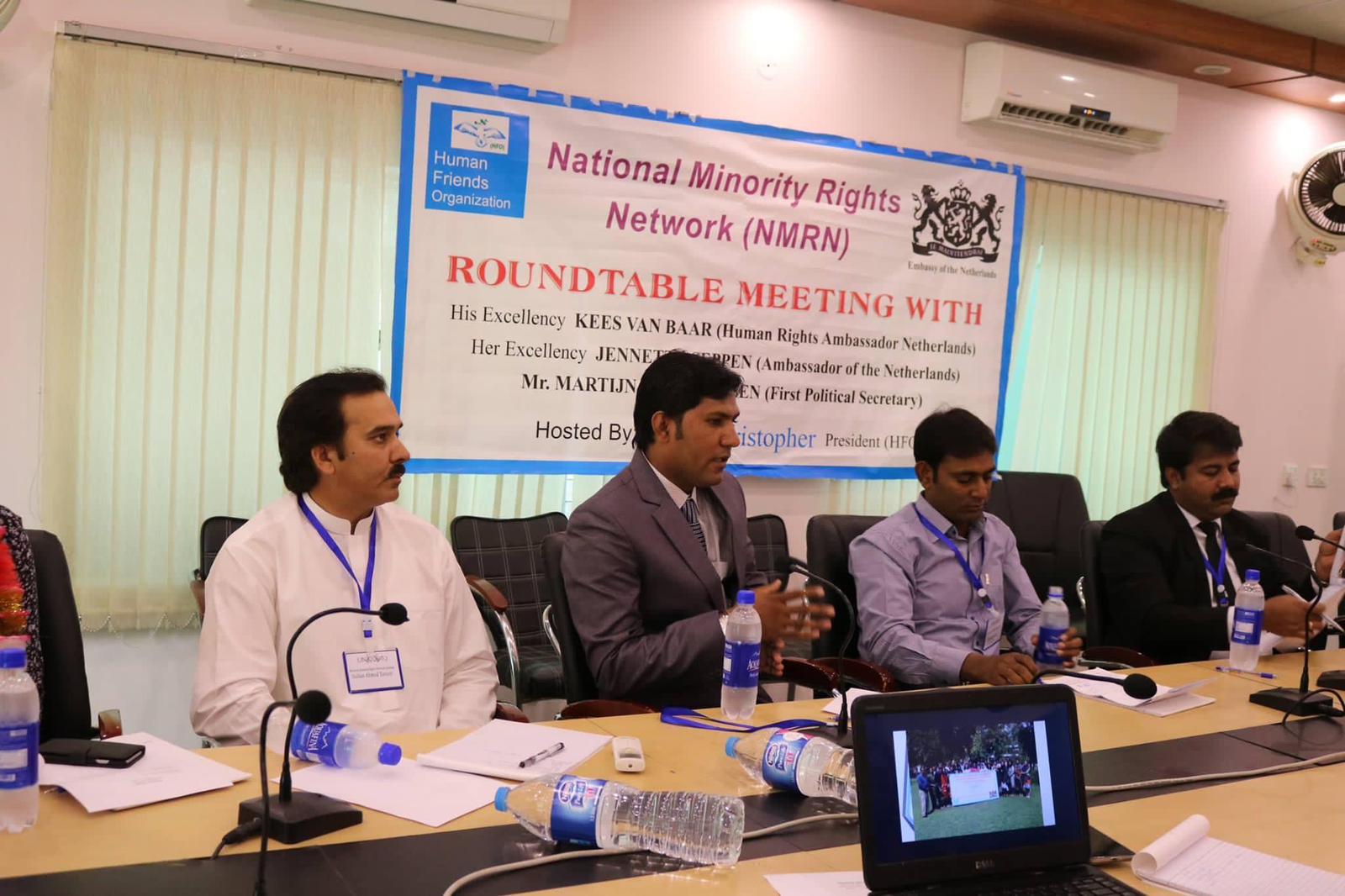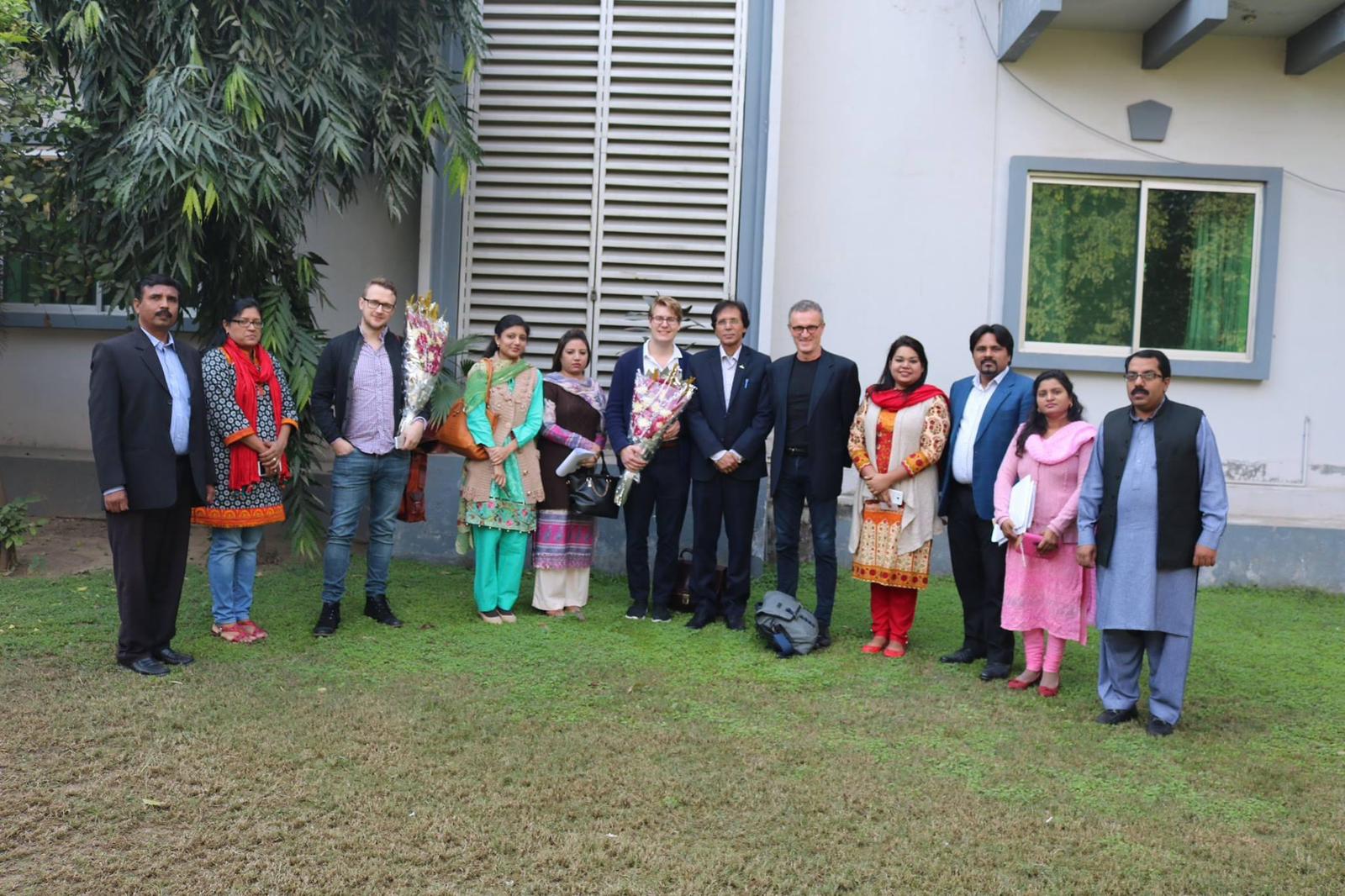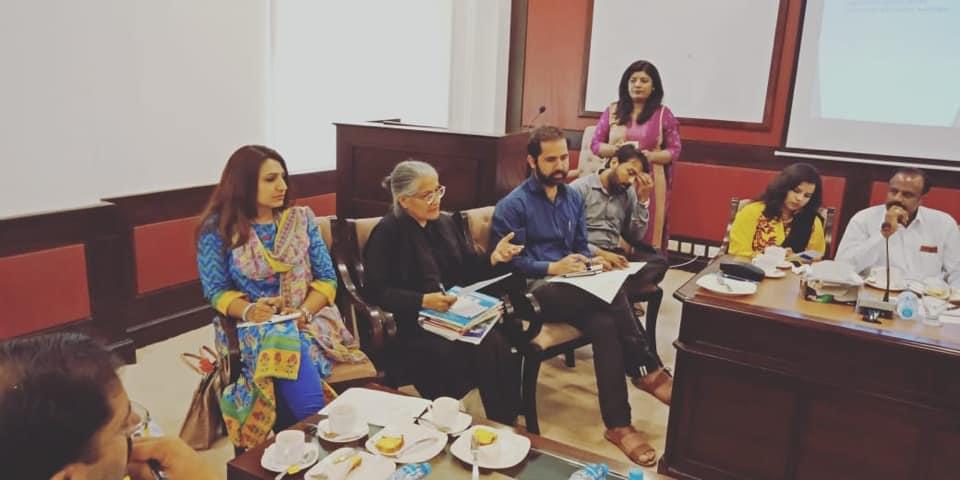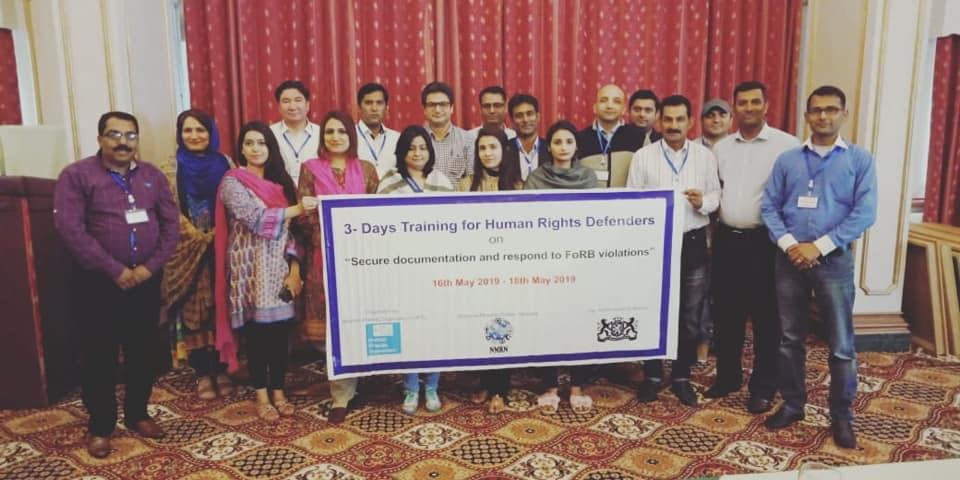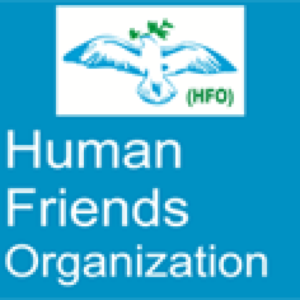BACKGROUND
Pakistan’s founding father, Mohammad Ali Jinnah, had envisioned a modern secular country in which everyone would enjoy religious freedom. He said “You are free; you are free to go to your temples, you are free to go to your mosques or to any other place or worship in this State of Pakistan, you may belong to any religion or caste or creed – that has nothing to do with the business of the State.” This is also reflected in Universal Declaration of Human Rights, International Convention of Civil and Political Rights and also in the Constitution of Pakistan – the essence of human rights is the notion of equality in human value and worth. There are the followers of world’s major religions such as the Christians and the Hindus in Pakistan..
With the help of all majority and minority representatives, minority friendly enabling environment can be strengthened to promote good governance, respect to rule of law and freedom of religion or faith. That is why, there is a need to develop and strength a minority rights network represented by all ethnic, religious and linguistic minorities at national level to reduce minority specific violations and discriminations.
WHY HUMAN RIGHTS NETWORK PAKISTAN (HRNP)?
Due to lack of coordination, technical knowledge and capacity, financial assistance and networking among minority rights activists, groups and organizations, advocacy efforts generally diluted and actions fail to bring the desired results. The situation of minority rights violations in Pakistan is dismal and provisions of survival, development, protection and participation rights of minorities are hardly ensure especially at grassroots level. Victims of rights violations suffer for rehabilitation and recovery. There are very few minority rights activists (individuals and organizations) working on minority rights without having adequate skill building, financial and networking support. Those who are engaged in advocacy for raising their voices are not properly heard. There is a dire need to establish a joint platform to raise collective voice for rights focused service. With a view to promote linkages among various ethnic, religious and linguistic minority activists individuals, groups and organizations to create synergy in their rights based initiatives, there is a need to structure their efforts by setting up and strengthening of National Minority Rights Network at national level having its provincial and districts representation from diversified ethnic, religious and linguistic minorities committed to promote fundamental freedoms or religion or belief.
Mission Statement:
Equal citizens with equal rights
GOALS, OBJECTIVES AND ACTIVITES
Goal
- Act as a catalyst of change as one unit representative of all ethnic, religious and linguistic minorities in Pakistan to develop and promote survival, development, protection and participation of minorities in legislative and policy matters.
Objectives
- Act as a joint platform to facilitate the efforts of all local, national, international and government actors to develop minority friendly legal, paralegal and social protection mechanisms to reduce minority rights violations, where all ethnic, religious and linguistic minority rights activists share their concerns and advocate for peaceful environment
ACTIVITIES
HRNP gets engaged in number of activities, few are reflected below;
- Record, compile and address minority rights violation and liaison with all minority and human rights activists, groups and organization for knowledge dissemination and services
- Advocate for fair trial (before, during and after) court hearing for minority rights victims
- Promote and conduct awareness raising on forced marriage, force conversions and constitutional provision for minority rights
- Lead in selection of lawyers, human rights activists, media journalists and community organizations for minority rights focused services
- Establish linkages with service delivery organizations (lawyers, media, government institutions like Ministry of Human Rights and Law, Social Welfare etc.) for social, legal and psychological support services
- Capacity building of network members/organizations to conduct advocacy events and other policy development processes
- Play a hub link role between Village Organizations (VOs), Workers Organization (WOs), CBOs and other civil society organizations to advocate and secure their rights
FUNCTIONING AND OPERATING MECHANISM
HRNP works primarily through and with existing national, provincial and grassroots minority rights specific organizations and networks at all levels – national, provincial and district. HRNP is a loose structured voluntary body of individuals, groups and organizations representing ethnic, religious and linguistic minorities to facilitate government and other service providing agencies to get timely justice for all victims of minority rights violations including forced marriage, conversion, blasphemy laws or religious clergy violence. HRNP gets engaged in seeking out solutions with the help governmental institutions and work independently to address advocate on behalf of those who are unable to get access to social, legal, paralegal and psychological assistance for their rehabilitation and recovery of such violations.
ROLES AND RESPONSIBILITIES OF HUMAN RIGHTS NETWORK PAKISTAN MEMBERS
Violation or denial of rights arises in all situations of structured and unstructured oppression and inequalities and democratic aspirations arising from all such situations, and resistance to such oppression, whether organized or not, whether collective or isolated, are equally important for solution. Responding to issues and concerns for all at national, provincial and districts and even outside are the focus of HUMAN RIGHTS NETWORK PAKISTAN. Following are the roles and responsibilities of HRNP;
- Take up minority rights violation through extensive fact-finding investigations
- Facilitate minority rights activists to document violations in their respective provinces and districts and identify priority issues for advocacy, lobbying and policy dialogue
- Facilitate petitions and legal interventions with the help of its pool of minority right lawyers
- Organize and address peaceful demonstrations, rallies and public meetings to advocate for human rights based services
- Participating in rights focused campaigns for rights based policy interventions
- Issuing press statements and media releases on minority rights violations
- Circulating leaflets and other forms of literature on human rights, minority rights, constitutional rights and other rights violations
- Develop liaison with Information and Referral Centers, Bar Associations, Local Government Representatives, Ministry of Human Rights, Media and local health care providers (basic and Psychological health) for Psychosocial and legal services provision
COMPOSITION OF HRNP
HRNP is regulated by ten members governing body (executive body and general body) consisting of people from various ethnic, religious or linguistic minority representatives from different walk of life like civil society organizations, community activists, journalists, lawyers, people’s representatives, health care providers for smooth functioning.
Executive body members
- Convener
- Advocacy Coordinator
- General Secretary
- Finance Secretary/Treasurer
- Media and Press Secretary
GENERAL MEMBERS
The HRNP have five general members who will liaison with executive body and community. Executive body and general body is responsible for awareness raising, advocacy and lobbying at local and district level.
National Convener is responsible for developing liaison with ethnic, religious and linguistic minorities and other communities, member organizations and other governmental and non-governmental actors and government functionaries with the help of press secretary.
WHO WILL BE HUMAN RIGHTS FORUM MEMBERS?
Following (but not limited to) can be the members of the HRNP
- Organizations working on ethnic, religious or linguistic minorities
- Minority rights activists
- Human rights activists
- Legislators and parliamentarian representing minorities in legislative bodies
- Professional experts (Psychologists, Social workers, teachers, doctors, nurses etc.)
- Local community members (representing any walk of life)
- People’s representatives (local, provincial and national level)
- Lawyers and Bar Associations (specially minority right laywer)
- Representatives of local and national media channels, organizations working in the area
Network members act without any discrimination of gender, color, race or ethnicity.
Women are strongly encouraged to take active part in HRNP composition and activities.
HOW HUMAN RIGHTS NETWORK PAKISTAN WORKS?
Human Rights Network Pakistan acts as networking, coordination and facilitator body between minority communities and service providers. It also acts as technical resource provider for training and capacity building of its members in the area of social, legal, paralegal knowledge building, skill and capacity building of its members on local, national and international human and minority rights mechanisms. HRNP helps its members, victims and lawyers to record human rights violations, documenting rights violations, networking and linkages building, designing an advocacy campaign and understanding of psychosocial rehabilitation for sustainability.
HRNP specifically engages in training and capacity building of its members. After training, HRNP members will be able to;
Compiling human rights violations by monitoring newspapers, television, radio, local police stations, internet etc
collecting case studies and human rights violation cases in the community
providing assistance to the victims by linking them with pool of professional lawyers, local police stations, local government officials, ministries and media representatives
connecting victims with local health care providers including Psychologists (if required)
HRNP members also pursue follow-up mechanism to address victims’ grievances
HOW HUMAN RIGHTS NETWORK PAKISTAN MEMBERS COORDINATE AND REPORT ?
The HRNP members via using all communication channels (email, viber, WhatsApp, skype, Facebook etc.) holds monthly meetings with the objective to update each other on the progress, design and plan activities, identify issues for advocacy and lobbying and decide who will do what. The meetings are properly recorded (attendance sheets, minutes etc.) in files at specific HRNP member organization office for transparency.
The HRNP holds quarterly meeting to design, plan and review the ongoing activities. The quarterly meetings are attended by any external community members. The HRNP shares its progress in a short presentation form and next quarter is planned to arrange joint actions for addressing minority rights violations, the nature of actions are decided by the HRNP members itself and also includes press conferences, demonstrations, signature campaigns, any assistance (medical, legal) as required.
The meetings are properly recorded in files at specific HRNP host organization for transparency.
HRNP also holds its annual assembly where all active members participate. This annual assembly is used as its national, provincial and district level annual planning including advocacy venues and avenues.
DEVELOPMENT OF SYSTEMS AND STRUCTURES
HRNP develops:
- Record keeping and filing
- Report writing and recording
- Documentation development and management
- Compiling minority rights violations and case studies
- Financial Management (if required)
REPORTING
- HRNP develops monthly, quarterly, annual reports
- HRNP develops case studies on monthly basis
- HRNP develops quarterly analysis of human rights violations recorded

